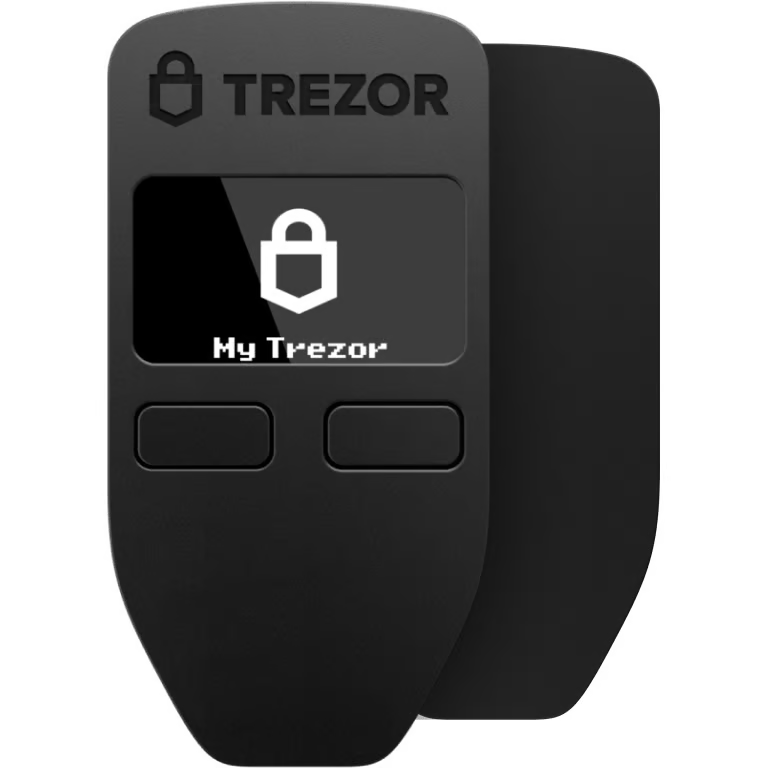Safe & secure Litecoin wallet
Take control of your Litecoin assets with complete confidence in the Trezor ecosystem.
- Secured by your hardware wallet
- Use with compatible hot wallets
- Trusted by over 2 million customers
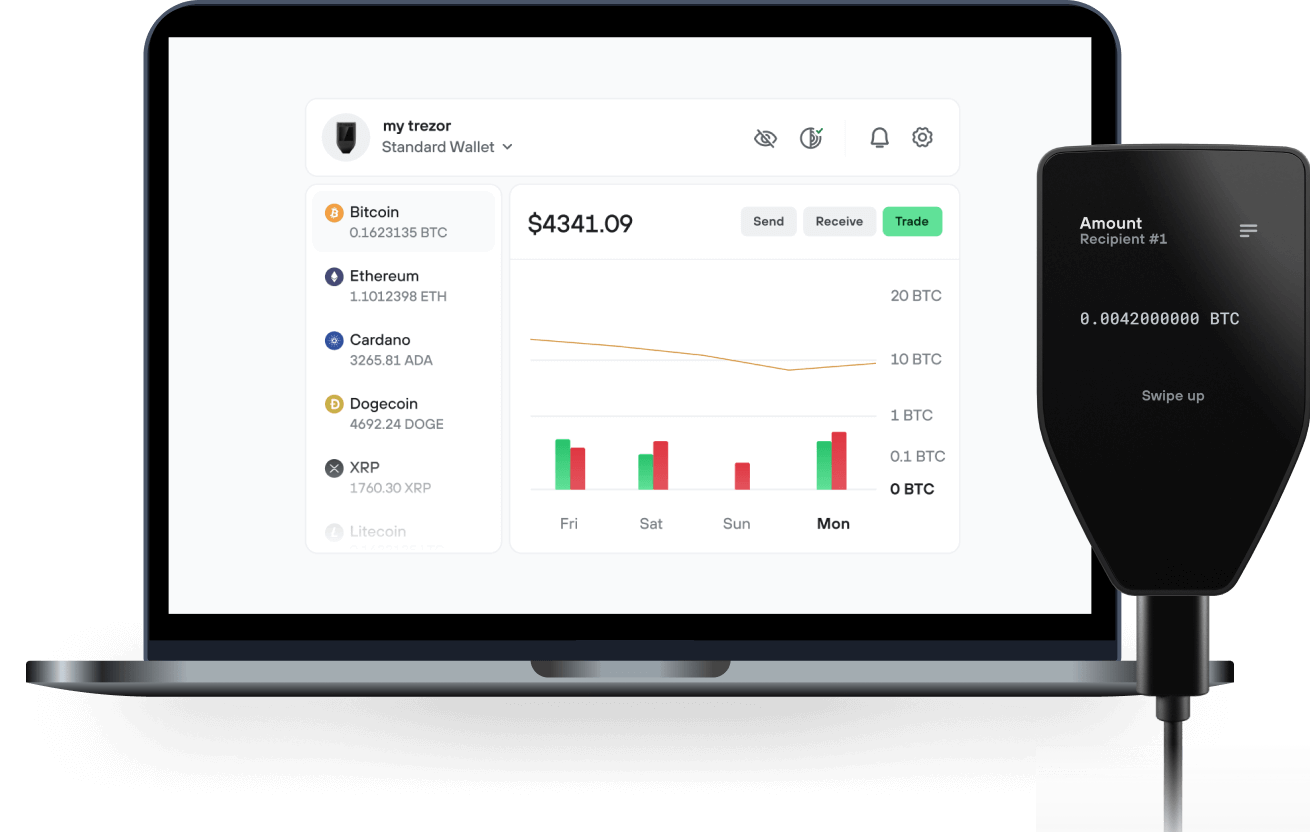
Buy, sell & manage your Litecoin with the Trezor Suite app

Send & receive

Buy, sell & swap
Trezor hardware wallets that support Litecoin
Sync your Trezor with wallet apps
Manage your Litecoin with your Trezor hardware wallet synced with several wallet apps.
Trezor Suite
Exodus
Supported Litecoin Network
- Litecoin
Why a hardware wallet?
Go offline with Trezor
- You own 100% of your coins
- Your wallet is 100% safe offline
- Your data is 100% anonymous
- Your coins aren’t tied to any company
Online exchanges
- If an exchange fails, you lose your coins
- Exchanges are targets for hackers
- Your personal data may be exposed
- You don’t truly own your coins
How to LTC on Trezor
Connect your Trezor
Install Trezor Suite app
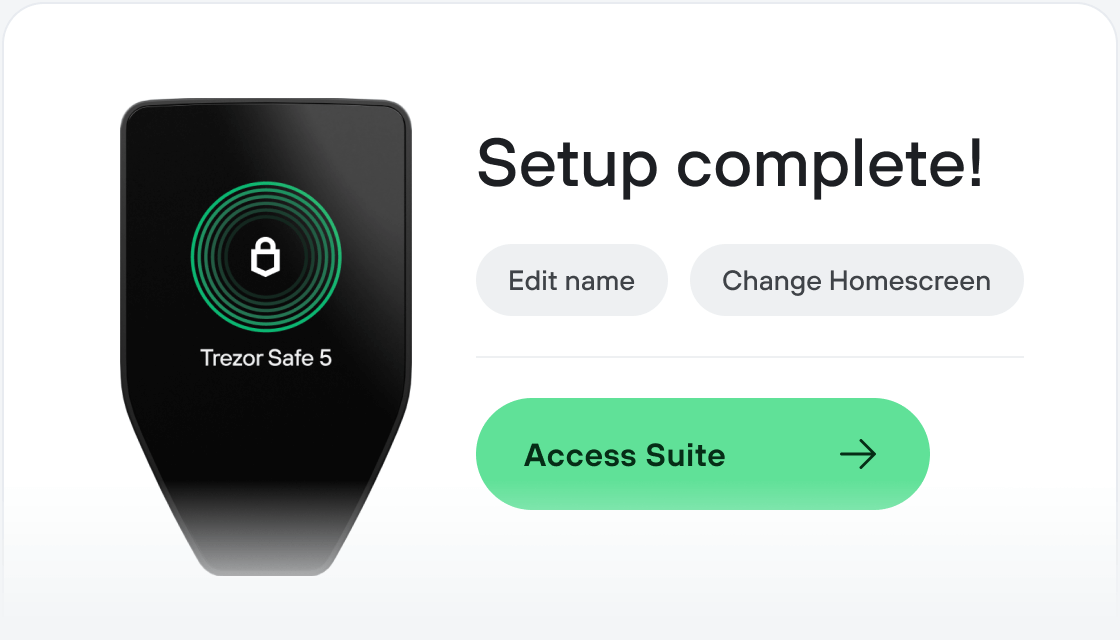
Transfer your LTC
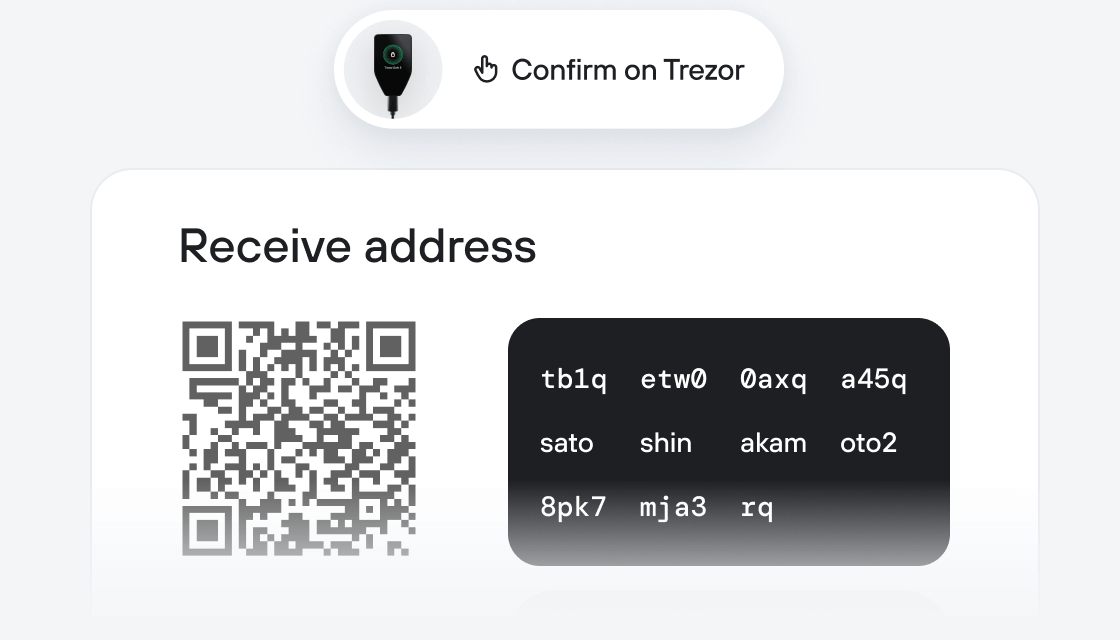
Make the most of your LTC
Trezor keeps your LTC secure
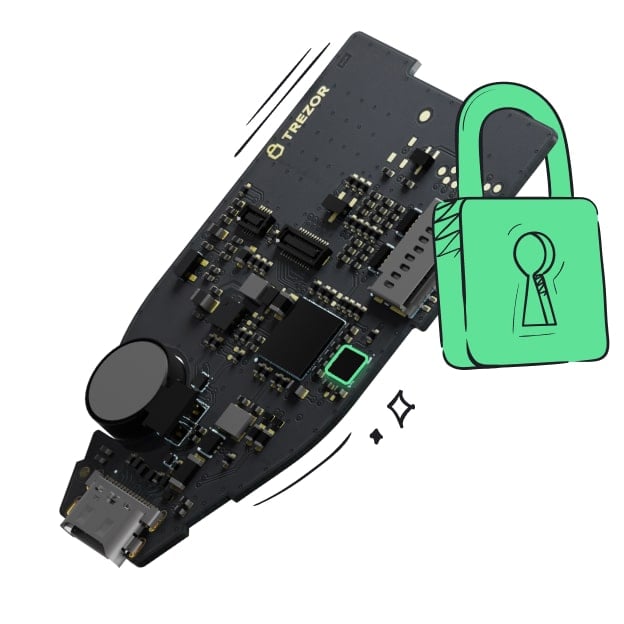 Protected by Secure Element
Protected by Secure ElementThe best defense against both online and offline threats
 Your tokens, your control
Your tokens, your controlAbsolute control of every transaction with on-device confirmation
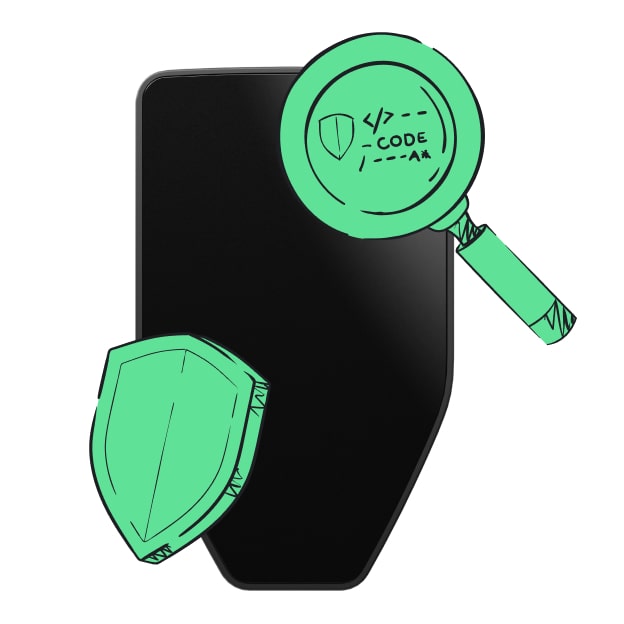 Security starts with open-source
Security starts with open-sourceTransparent wallet design makes your Trezor better and safer
 Clear & simple wallet backup
Clear & simple wallet backupRecover access to your digital assets with a new backup standard
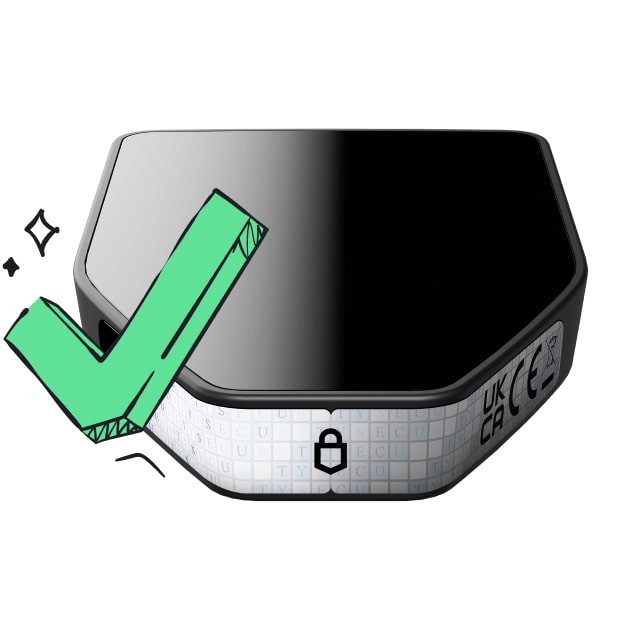 Confidence from day one
Confidence from day onePackaging & device security seals protect your Trezor’s integrity
Litecoin for speed & security
- Litecoin network benefits
- Litecoin's network offers faster transaction times compared to Bitcoin, with block generation occurring every 2.5 minutes, ensuring quicker confirmations and reduced network congestion. This makes Litecoin ideal for daily transactions and micro-payments.
- Utilizing a similar proof-of-work consensus mechanism as Bitcoin, Litecoin benefits from a highly secure and decentralized network, making it resistant to fraud and attacks. Its established blockchain is one of the oldest in the industry, contributing to long-term stability.
- Litecoin's network is designed to handle a higher volume of transactions, enabling scalability even as adoption increases. This makes Litecoin an attractive option for increasing numbers of users, merchants, and developers.
- Secure Litecoin management
- Trezor Suite provides a seamless interface for managing Litecoin and other cryptocurrencies. The app supports multi-currency wallets, making it easy for users to store, send, and receive Litecoin securely from one platform.
- As a wallet app, Trezor Suite offers top-tier security, including two-factor authentication (2FA), PIN protection, and wallet backup options. It ensures that users' private keys are stored offline, safeguarding against online threats like hacking.
- Trezor Suite is compatible with both desktop and mobile devices, offering flexibility in managing Litecoin assets on the go. Users can easily track balances, view transaction history, and initiate transfers from various devices.
- Third-party wallet apps
- Exodus provides an intuitive wallet interface for managing Litecoin alongside a variety of other cryptocurrencies. It integrates directly with Trezor hardware wallets, enhancing security while offering a user-friendly experience with real-time price tracking, portfolio management, and in-app exchanges.
- Wallet apps like Exodus offer multi-platform support, including Windows, Mac, Linux, and mobile devices. This ensures Litecoin users can manage their assets from virtually anywhere.
Litecoin in a nutshell
Litecoin (LTC), created by Charlie Lee in October 2011, is one of the first altcoins and operates as a peer-to-peer cryptocurrency. It runs on an open-source blockchain, similar to Bitcoin, and uses a proof-of-work (PoW) consensus mechanism. Litecoin enables fast, low-cost transactions with quicker block generation times, resulting in faster transaction confirmations. Its total supply is capped at 84 million LTC.
Litecoin is supported directly in the Trezor Suite and Trezor Suite Lite apps.
Communities
Frequently asked questions
Litecoin is mined using a proof-of-work algorithm called Scrypt, which is different from the SHA-256 algorithm used by Bitcoin. Miners solve complex mathematical problems to validate transactions and create new blocks, and they are rewarded with newly created LTC and transaction fees.
A Litecoin wallet is a tool that allows you to send, receive, and store LTC. It can be a hardware wallet, like Trezor, a software wallet on a computer or mobile device, or even a paper wallet.
A Litecoin explorer is an online tool that lets you view the details of transactions, blocks, and addresses on the Litecoin blockchain. It's useful for verifying transactions and checking balances.
The Litecoin hashrate measures the total computing power used to mine and process transactions on the Litecoin network. It fluctuates based on the number of active miners and the efficiency of their mining equipment.
A higher hashrate means a more secure network, as it indicates more resources are being used to verify transactions and prevent attacks. Conversely, a lower hashrate may suggest decreased mining activity, which could impact security and transaction times.
The hashrate can be influenced by factors like mining difficulty, market conditions, and improvements in mining hardware. Monitoring the hashrate helps assess the overall health of the Litecoin network.
Litecoin can be used for payments both online and in physical stores that accept cryptocurrencies. As with any other cryptocurency, you’ll need to send the necessary amount of LTC to the recipient’s receive address. Transactions are typically faster and cheaper than those with bitcoin.
Litecoin is more focused on peer-to-peer transactions, while Ethereum also allows smart contracts and decentralized applications. They use different algorithms, have different block times, and serve different purposes within the crypto ecosystem.
If you’re looking to securely store and manage your Litecoin, Trezor is a fantastic choice. It’s one of the top hardware wallets out there, offering great security by keeping access to your LTC offline and safe from hacks and malware.
With the Trezor Suite app, you can easily send, receive, and manage your Litecoin—all with a super user-friendly interface and solid security features. If you really want to keep your crypto safe, Trezor is definitely one of the best wallets for Litecoin.
The safest way to buy LTC using your Trezor is through the Trezor Suite app, and it's easy to do in just a few steps! Simply go to the “Buy & sell” tab in Trezor Suite, enter the amount of fiat currency you want to spend, and select a trusted exchange partnered with Invity.io. You can complete your purchase quickly and securely, giving you full control over your LTC.
Litecoin focuses on fast, peer-to-peer transactions, offering quicker confirmation times with an average block time of about 2.5 minutes. In contrast, Ethereum supports smart contracts and decentralized applications (DApps), allowing developers to create a variety of applications on its blockchain, with an average block time of around 12 to 15 seconds.
They also use different algorithms: Litecoin utilizes a Scrypt-based proof-of-work system, while Ethereum is transitioning to proof-of-stake. Overall, Litecoin is ideal for speedy transactions, while Ethereum offers a versatile platform for innovation.
